This post contains affiliate links for which we may receive compensation at no additional cost to you. Click here to read our full affiliate policy.
With decreasing daylight and increasing stress, November doesn’t always feel like the right time to focus on gratitude, but maybe that’s exactly why we should—or at least try! Our November Epic Book Recommendations roundup is full of titles designed to spark curiosity, imagination, and yes, thankfulness. Enjoy!
The research is clear: gratitude is good, and it’s not just for grownups! A 2019 study found connections between gratitude and happiness in children as young as five years old, and November is National Gratitude Month—a great time to discuss this topic with our students.
This tender picture book from author Monique Gray Smith and illustrator Julie Flett (who are both Indigenous) is a celebration of all the simple but profound moments that bring us joy.
Therapy ideas and skills to target:
- Vocabulary/synonyms: Students could consider the similarities (and differences) between the words gratitude and happiness, and brainstorm additional words related to positive emotions.
- When questions: All of the happiness sources highlighted in this book are experiences, not things. This distinction offers a perfect opportunity to teach the concept of when, contrasting it with the concept of what.
- Research/extension: The possibilities are endless here, especially because My Heart Fills With Happiness is also available in two dual-language versions, with English and Plains Cree, and English and Anishinaabemowin. Students could learn about these languages, and perhaps even pick up a few phrases! They could also create a gratitude wall or write thank you letters to loved ones.
This beautiful exploration of happiness is also available as a board book.
If you’re looking for confirmation that there really is a holiday for everything, here it is: November 2nd is Look for Circles Day! Is it a little silly? Yes. Does it lend itself to a fabulous assortment of speech therapy activities? Also yes! And reading Small World with your students is the perfect place to start.
Ishta Mercurio and Jen Corace’s gorgeous picture book begins with the main character Nanda safe in the circle of her mother’s arms, and ends with her looking at the circle of Earth from space.
Therapy ideas and skills to target:
- Basic concepts: Even very young students can get in on the fun with this one by simply going through the book and looking for circles! Elementary students could do a scavenger hunt for circles around the school (or speech room) or hide paper circles/pennies/game tokens and give/follow directions for finding them (perfect for targeting prepositions as well!).
- Describing: This book is full of lyrical language, with phrases like “sun-kissed maze of wheat” and “pinecone-prickled mountains.” Students could create found poems or develop their own descriptive phrases full of imagery.
- Research/extension: In her author’s note, Ishta Mercurio references a joyful photo of five women from the Indian Space Research Organization after their Mars satellite successfully went into orbit. With this in mind, students could honor Red Planet Day (November 28) by doing research about Mars. They could also explore some of the other science concepts from the book, including human-powered helicopters and fractals.
- Bonus! Former teacher Marcie Colleen has created a comprehensive classroom guide for this book. It’s full of creative ideas!
Small World is available in hardcover as well!
This sweet story from Laura Renauld and Jennie Poh is a celebration of fall, friendship, and feasting! The hero is Porcupine, who generously helps all her forest friends with their recipes for Fall Feast Day—and then discovers she needs some help as well.
Porcupine’s adventures could pair with National Easy-Bake Oven Day on November 4th, National Hug a Bear Day on November 7th (one of Porcupine’s best friends is a bear!) or World Kindness Day on November 13th. You can’t go wrong—pie is always in season!
Therapy ideas and skills to target:
- Sequencing: Students could explain the events of the story in order—they are clear and simple, ideal for students who struggle with this skill. If you’re feeling energetic (or hungry), you could also help students practice sequencing by following the “Friendship Pie” recipe at the back of the book!
- Social-emotional learning: This book shines with kindness, generosity, and empathy. Students could discuss various examples of these qualities, both from the book and from their own lives. They could also talk about how friendship is presented in the book.
- Research/extension: Students could learn about the science of autumn, and search the illustrations for evidence that this book is set during the fall. They could also learn more about porcupines, or watch this video of the author reading Porcupine’s Pie out loud.
Porcupine’s sweet tale also has a hardcover option.
Making a Bridge for the Gingerbread Man
In this unique book, author Sue Gagliardi combines a classic fairy tale + kid-friendly science experiments + a physics lesson—and it works! (It’s also excellent for STEM Day on November 8th, and National Gingerbread Cookie Day on November 21st.)
Many students have an “either/or” relationship with books—they cheer for stories but can’t stand nonfiction, or they love informational texts but get bored with fiction. Fortunately, this book has something for everyone!
Therapy ideas and skills to target:
- Articulation: The audience for this book is late elementary/early middle school students—an age when /r/ articulation goals are common. So, it’s very convenient that Making a Bridge for the Gingerbread Man is full of “er” and /r/-blends!
- Vocabulary: This book includes many science-focused Tier II vocabulary words, including “foundation,” “force,” and “load.” Students could use context clues to infer the meanings of these words, then check their work using the glossary in the back of the book.
- Research/extension: The model bridge projects in this book aren’t overly complicated, and they use common, accessible materials. They also provide hands-on opportunities to practice sequencing, following directions, predicting, and problem-solving!
This multifaceted book is also available in paperback.
In the most-watched TED Talk of all time (over 75 million views and counting!), author Sir Ken Robinson asked, “Do schools kill creativity?” and at the time of the talk, at least, his answer was mostly yes. (Robinson passed away in 2020, but his legacy continues.) Of course, schools and educators don’t want to thwart the wild and wonderful workings of our students’ minds, but as we struggle with data and compliance and testing, it’s something that just happens.
With these complex realities in mind, Roman Yasiejko and Ben Whitehouse’s book is a welcome breath of fresh air! It shares the story of Nicholas, an out-of-the-box thinker who brings stories to life for his classmates and teacher.
Therapy ideas and skills to target:
- Before/after and cause/effect: The teacher’s outlook changes significantly as the plot unfolds in this book! Students could discuss how she changes, and the possible reasons behind her transformation.
- Verbs: Where the Best Stories Hide sparkles with vibrant verbs, including “squint,” “snap,” “wiggle,” and “whirl.” Students could create pictures of the verbs, act them out, and experiment with different tenses.
- Research/extension: This book aligns perfectly with Celebrate Your Unique Talent Day on November 24th! Students could share about and demonstrate their own special talents. Students could also get creative and make their own drawings, stories, and projects.
This celebration of creativity also comes in hardcover!
I hope you find our November Epic Book Recommendations to be helpful. All of these books are available for free through Epic when you sign up for an educator account, or you could request them from your local library. Enjoy!

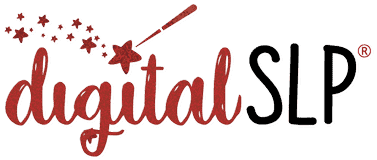
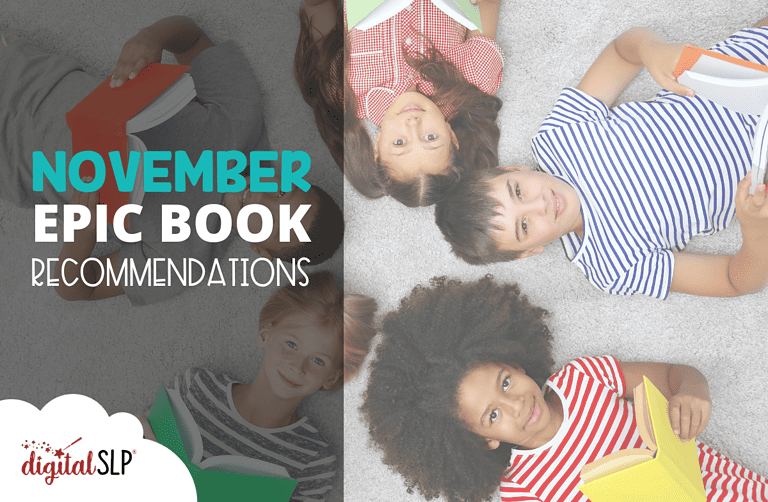
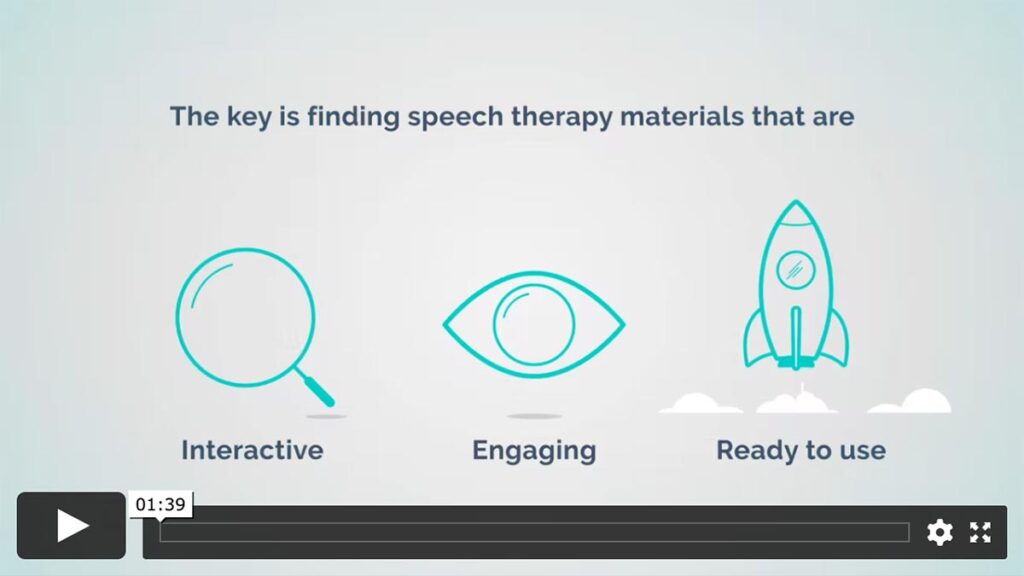


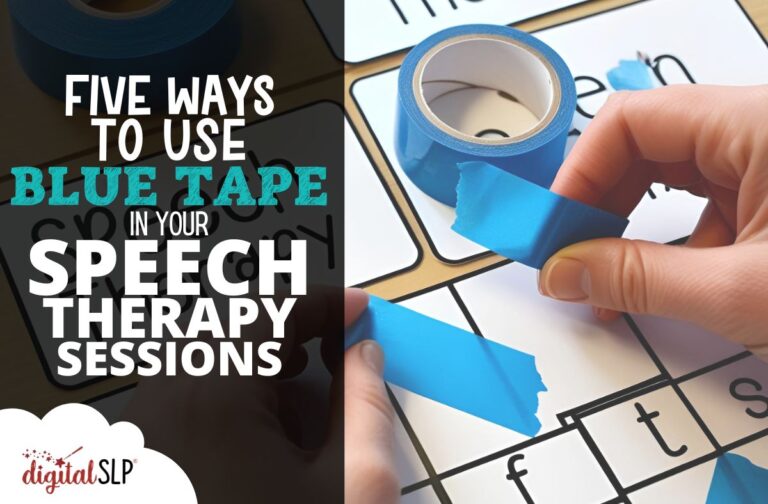
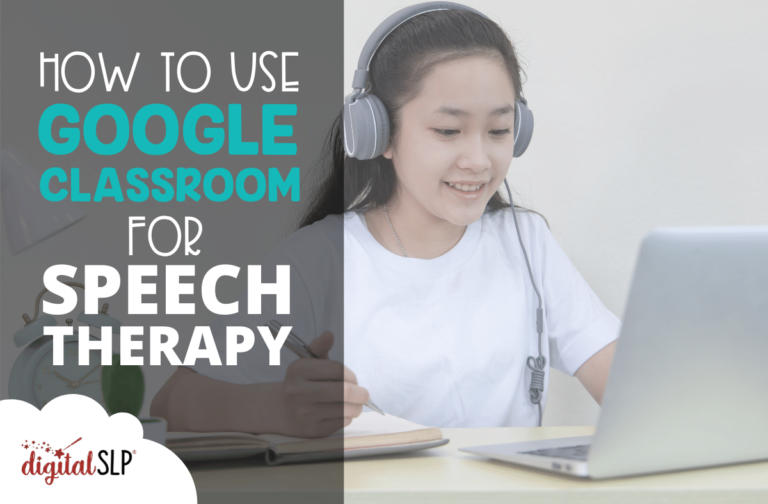
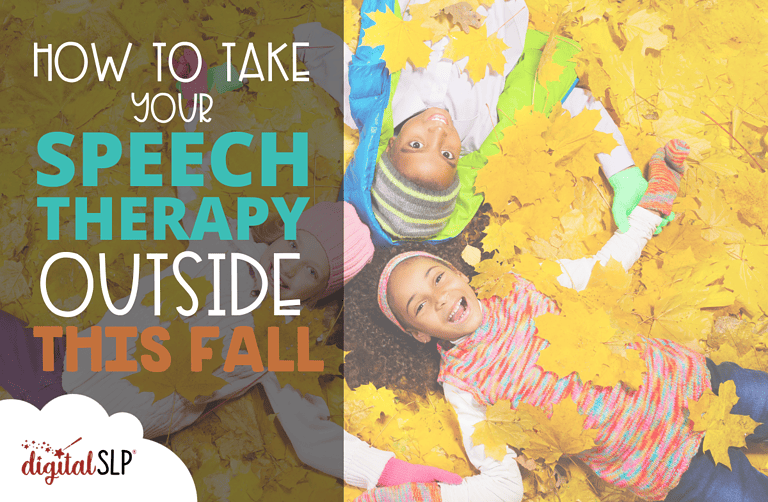
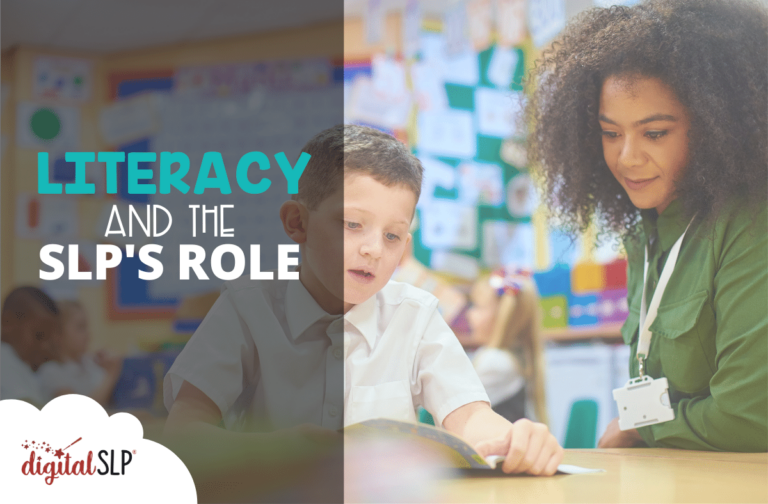

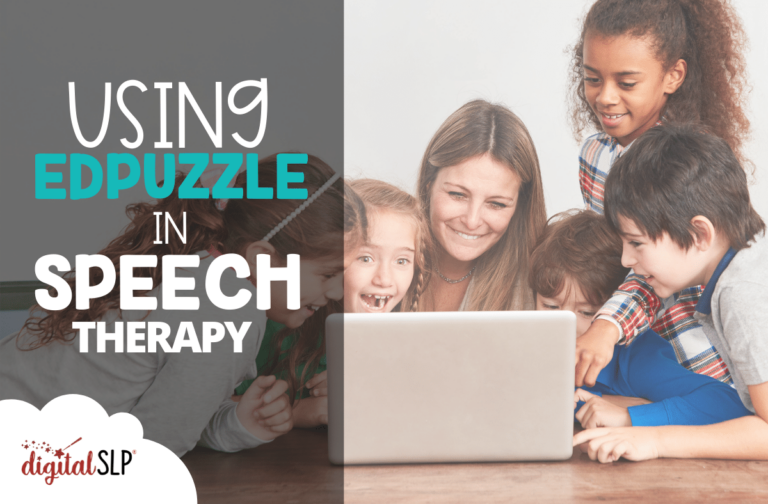

Recent Comments